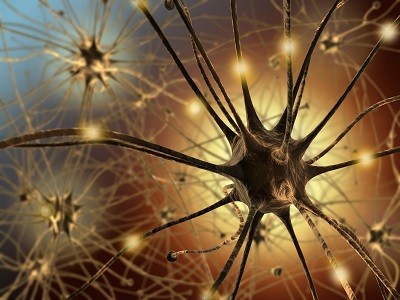Disease Neurogenomics
Guest editors: Joseph Buxbaum and Catalina Betancur
 Genome Medicine is pleased to present a special issue on Disease Neurogenomics. The issue captures the advances made in understanding the impact of genetic and genomic variation on neuronal function, networks and the transition to dysregulation, with a special focus on neurodevelopmental, neuropsychiatric and neurodegenerative diseases.
Genome Medicine is pleased to present a special issue on Disease Neurogenomics. The issue captures the advances made in understanding the impact of genetic and genomic variation on neuronal function, networks and the transition to dysregulation, with a special focus on neurodevelopmental, neuropsychiatric and neurodegenerative diseases.This collection of articles has not been sponsored and articles have undergone the journal’s standard peer-review process. The Guest editors declare that they have no competing interests.
Red blood cell indices and anaemia as causative factors for cognitive function deficits and for Alzheimer’s disease
Studies have shown that low haemoglobin and anaemia are associated with poor cognition, and anaemia is known to be associated with Alzheimer’s disease (AD), but the mechanism of this risk is unknown. Here, we ...Genome Medicine 2018 10:51Integrated biology approach reveals molecular and pathological interactions among Alzheimer’s Aβ42, Tau, TREM2, and TYROBP in Drosophila models
Cerebral amyloidosis, neuroinflammation, and tauopathy are key features of Alzheimer’s disease (AD), but interactions among these features remain poorly understood. Our previous multiscale molecular network mo...Genome Medicine 2018 10:26Elevated polygenic burden for autism is associated with differential DNA methylation at birth
Autism spectrum disorder (ASD) is a severe neurodevelopmental disorder characterized by deficits in social communication and restricted, repetitive behaviors, interests, or activities. The etiology of ASD invo...Genome Medicine 2018 10:19Local adaptation in European populations affected the genetics of psychiatric disorders and behavioral traits
Recent studies have used genome-wide data to investigate evolutionary mechanisms related to behavioral phenotypes, identifying widespread signals of positive selection. Here, we conducted a genome-wide investi...Genome Medicine 2018 10:24Genetic risk for Alzheimer’s disease is concentrated in specific macrophage and microglial transcriptional networks
Genome-wide association studies of Alzheimer’s disease (AD) have identified a number of significant risk loci, the majority of which lie in non-coding regions of the genome. The lack of causal alleles and cons...Genome Medicine 2018 10:14Characterization of cross-tissue genetic-epigenetic effects and their patterns in schizophrenia
One of the major challenges in current psychiatric epigenetic studies is the tissue specificity of epigenetic changes since access to brain samples is limited. Peripheral tissues have been studied as surrogate...Genome Medicine 2018 10:13Synaptic dysfunction in complex psychiatric disorders: from genetics to mechanisms
Breakthroughs on many fronts have provided strong evidence to support synaptic dysfunction as a causal factor for neuropsychiatric diseases. Genetic studies have identified variants implicated in novel biologi...Genome Medicine 2018 10:9- Genome Medicine 2018 10:8
Modeling psychiatric disorders using patient stem cell-derived neurons: a way forward
Our understanding of the neurobiology of psychiatric disorders remains limited, and biomarker-based clinical management is yet to be developed. Induced pluripotent stem cell (iPSC) technology has revolutionize...Genome Medicine 2018 10:1B3GALNT2 mutations associated with non-syndromic autosomal recessive intellectual disability reveal a lack of genotype–phenotype associations in the muscular dystrophy-dystroglycanopathies
The phenotypic severity of congenital muscular dystrophy-dystroglycanopathy (MDDG) syndromes associated with aberrant glycosylation of α-dystroglycan ranges from the severe Walker-Warburg syndrome or muscle-ey...Genome Medicine 2017 9:118Integrated Bayesian analysis of rare exonic variants to identify risk genes for schizophrenia and neurodevelopmental disorders
Integrating rare variation from trio family and case–control studies has successfully implicated specific genes contributing to risk of neurodevelopmental disorders (NDDs) including autism spectrum disorders (...Genome Medicine 2017 9:114Mapping a shared genetic basis for neurodevelopmental disorders
Distinct neurodevelopmental disorders have a common genetic etiology that explains the high degree of comorbidity among these disorders. A recent study sought to identify copy number variants across five neuro...Genome Medicine 2017 9:109Copy number variation meta-analysis reveals a novel duplication at 9p24 associated with multiple neurodevelopmental disorders
Neurodevelopmental and neuropsychiatric disorders represent a wide spectrum of heterogeneous yet inter-related disease conditions. The overlapping clinical presentations of these diseases suggest a shared gene...Genome Medicine 2017 9:106Impact of IQ on the diagnostic yield of chromosomal microarray in a community sample of adults with schizophrenia
Schizophrenia is a severe psychiatric disorder associated with IQ deficits. Rare copy number variations (CNVs) have been established to play an important role in the etiology of schizophrenia. Several of the l...Genome Medicine 2017 9:105Linkage, whole genome sequence, and biological data implicate variants in RAB10 in Alzheimer’s disease resilience
While age and the APOE ε4 allele are major risk factors for Alzheimer’s disease (AD), a small percentage of individuals with these risk factors exhibit AD resilience by living well beyond 75 years of age without ...Genome Medicine 2017 9:100Neuroimaging genomics in psychiatry—a translational approach
Neuroimaging genomics is a relatively new field focused on integrating genomic and imaging data in order to investigate the mechanisms underlying brain phenotypes and neuropsychiatric disorders. While early wo...Genome Medicine 2017 9:102Recurrent de novo mutations in neurodevelopmental disorders: properties and clinical implications
Next-generation sequencing (NGS) is now more accessible to clinicians and researchers. As a result, our understanding of the genetics of neurodevelopmental disorders (NDDs) has rapidly advanced over the past f...Genome Medicine 2017 9:101A putative causal relationship between genetically determined female body shape and posttraumatic stress disorder
The nature and underlying mechanisms of the observed increased vulnerability to posttraumatic stress disorder (PTSD) in women are unclear.Genome Medicine 2017 9:99Whole-exome sequencing in amyotrophic lateral sclerosis suggests NEK1 is a risk gene in Chinese
Amyotrophic lateral sclerosis (ALS) is a progressive neurological disease characterised by the degeneration of motor neurons, which are responsible for voluntary movement. There remains limited understanding o...Genome Medicine 2017 9:97Prospects for using risk scores in polygenic medicine
Genome-wide association studies have made strides in identifying common variation associated with disease. The modest effect sizes preclude risk prediction based on single genetic variants, but polygenic risk ...Genome Medicine 2017 9:96
































No hay comentarios:
Publicar un comentario